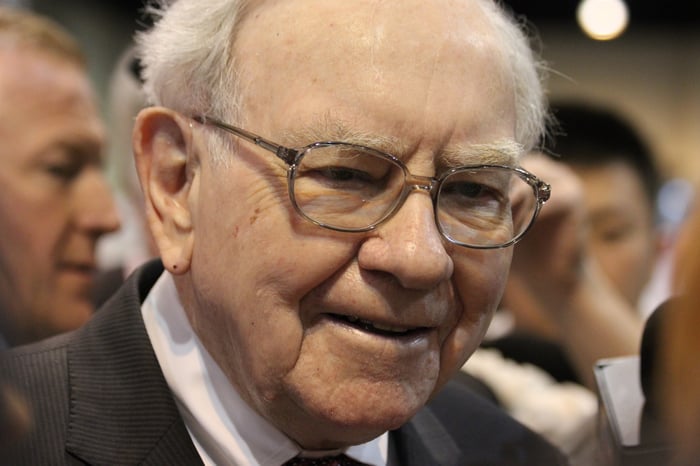It's an understatement to say Warren Buffett knows a thing or two about investing. Few if any CEOs have generated such high returns as consistently and for as long as Buffett has.
Although his total returns have actually lagged well behind the S&P 500 for the past decade, that's really a more recent phenomenon and a result of the pandemic dramatically dragging down his holdings. Yet for a portfolio worth over $300 billion, it's still an amazing feat and one worth watching closely.
Below are two stocks owned by Berkshire Hathaway (BRK.A 0.88%) (BRK.B 0.55%) that any investor will not regret buying and holding onto forever.

Image source: The Motley Fool.
AbbVie
Pharmaceutical giant AbbVie (ABBV 0.99%) is a beaten-down Buffett stock that has dragged the portfolio lower. Its stock lost $20 billion in market value after the Food and Drug Administration said all Janus kinase (JAK) inhibitors for sale in the U.S. must carry a warning label announcing the drugs carry serious side effects, including blood clots and even death.
AbbVie was clobbered because its arthritis therapy Rinvoq is a JAK-inhibiting prescription drug that is supposed to replace Humira when it goes off-patent. Humira, of course, has been AbbVie's money-maker, generating $19.8 billion in sales in 2020 and accounting for about 43% of the pharma's total revenue.
But AbbVie says the market has it wrong because the FDA's decision is based on the agency's study of Xeljanz, made by Pfizer, which has a different safety profile than that of Rinvoq. Rinvoq was also recently shown in late-stage trials to be superior to Dupixent, the non-JAK inhibitor drug from Sanofi and Regeneron.
What this means is investors have a unique opportunity to buy into a stable, cash-generating pharma giant at a big discount.
Because Humira has multiple indications it's approved for here and abroad, it will still be a massively growing therapy for years to come despite the presence of biosimilars in foreign markets and soon in the U.S.
Also, last year's acquisition of Allergan brought Botox into its portfolio along with added cash flow for research and development. The deal was immediately accretive to earnings and will result in more than $2 billion in cost synergies by the end of the third year.
That's all to say you can buy AbbVie's stock for less than eight times earnings estimates and less than 18 times the free cash flow it produces, meaning it's poised to deliver big returns going forward for its shareholders.

Image source: Amazon.
Amazon
Amazon (AMZN 1.80%) may at once be an obvious choice and one that's surprising. It has become such an omnipresent company in our lives and in the market, it's easy to ignore, but is also a no-brainer investment.
The prime reason most investors would choose Amazon as a lifelong investment is because of its clear dominance of the e-commerce space. While it might not always be the premier online retailer in the U.S., there isn't anyone close to giving it a run for its money.
The industry analysts at eMarketer estimate Amazon will account for 40% of all online spending in the U.S. this year, or more than five times the share of runner-up Walmart. In fact, if you add up the market share of Amazon's nine top competitors, its market share would still exceed their combined share by 50%.
Perhaps the most remarkable thing is that e-tail isn't even the best part of an Amazon investment. It's the cloud-based Amazon Web Services that provides the most potential.
Without question, AWS is the leader in cloud infrastructure market share, too, and over the first six months of 2021 it's on pace to surpass $56 billion in revenue for the year, some 33% more than it generated last year.
Lest you think that's an easy bar to step over since last year was a pandemic-addled one, AWS actually enjoyed 30% growth over 2019, so not only is it still growing, but the growth is accelerating. Estimates from Canalys suggest AWS has a 32% share of worldwide cloud-infrastructure spending.
Despite this muscular effort, Amazon's stock is down 14% from the highs it hit this summer, and while it might not be as discounted as AbbVie, its stock is one that belongs in the long-term holding folder of your portfolio.





